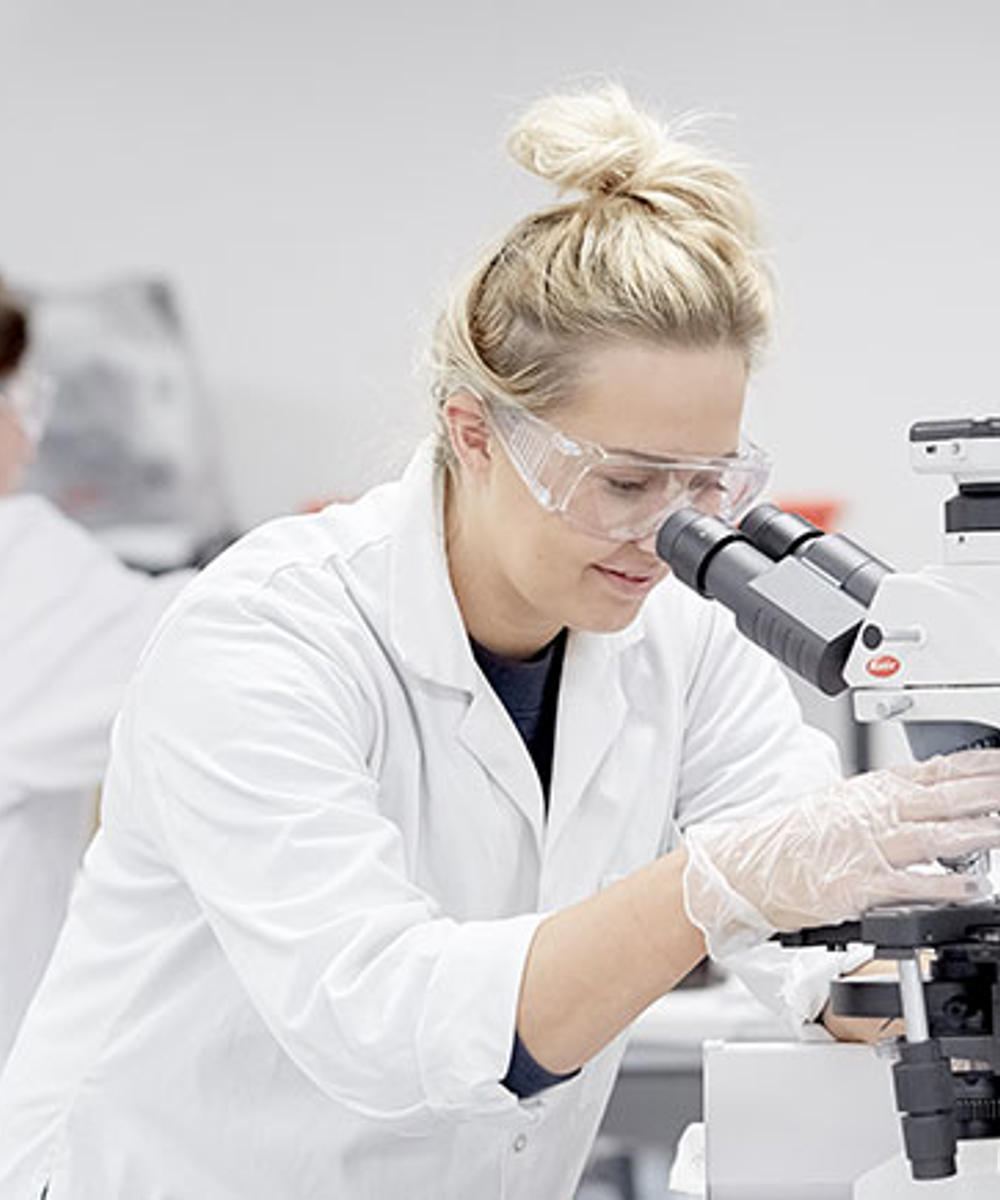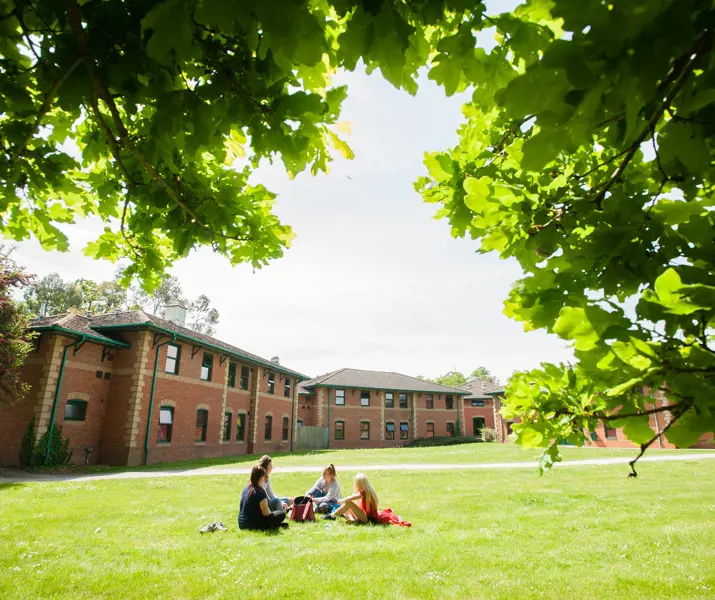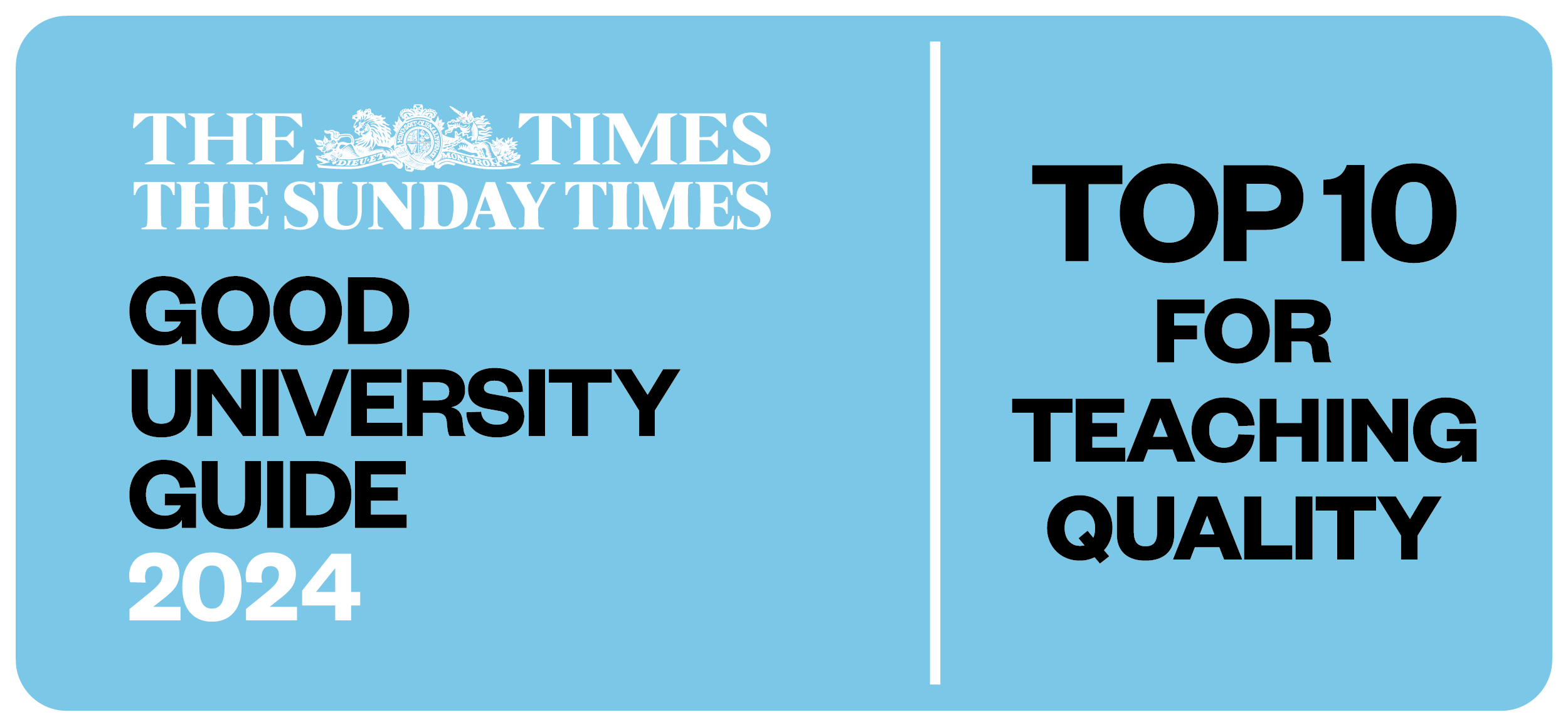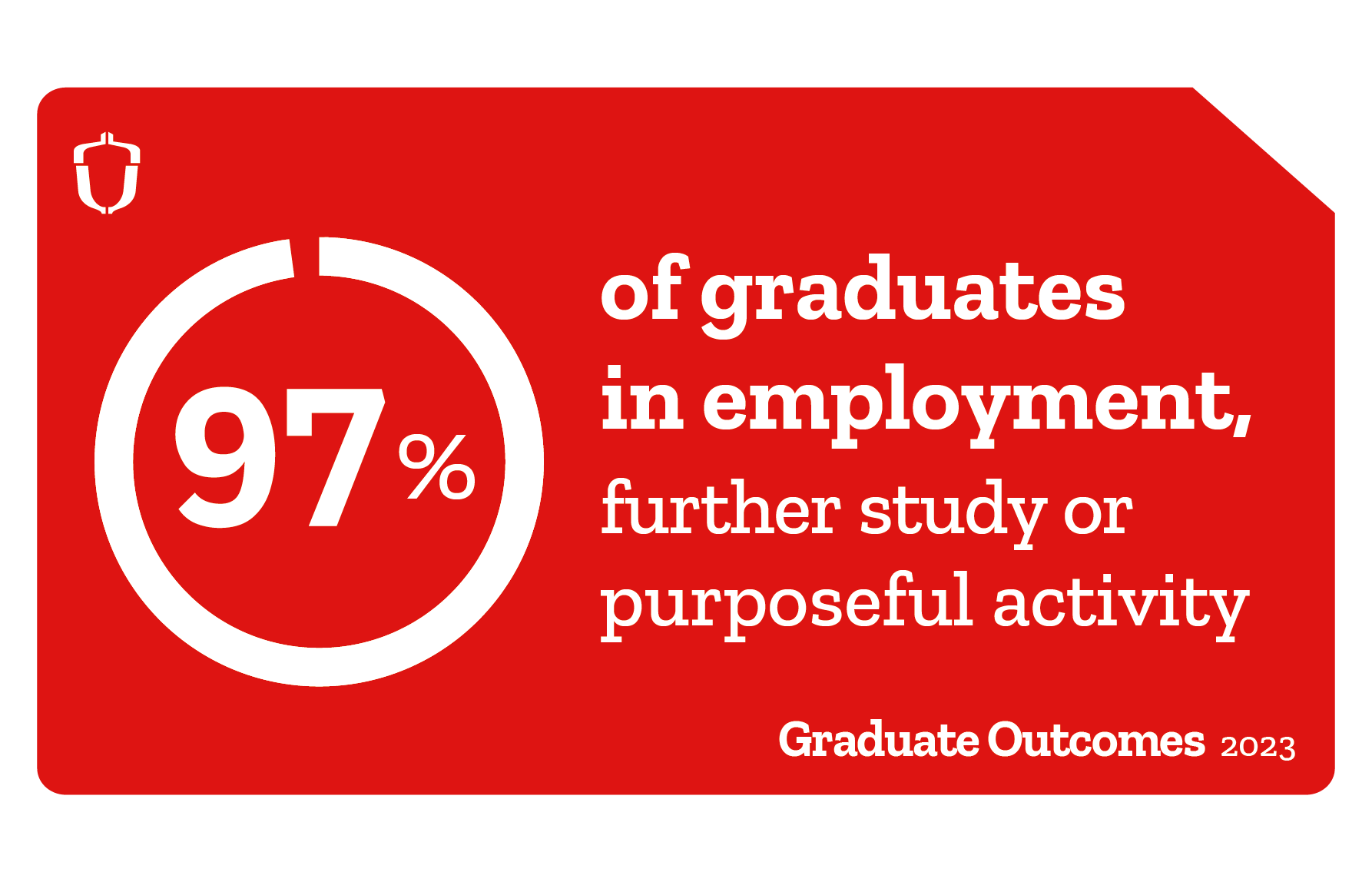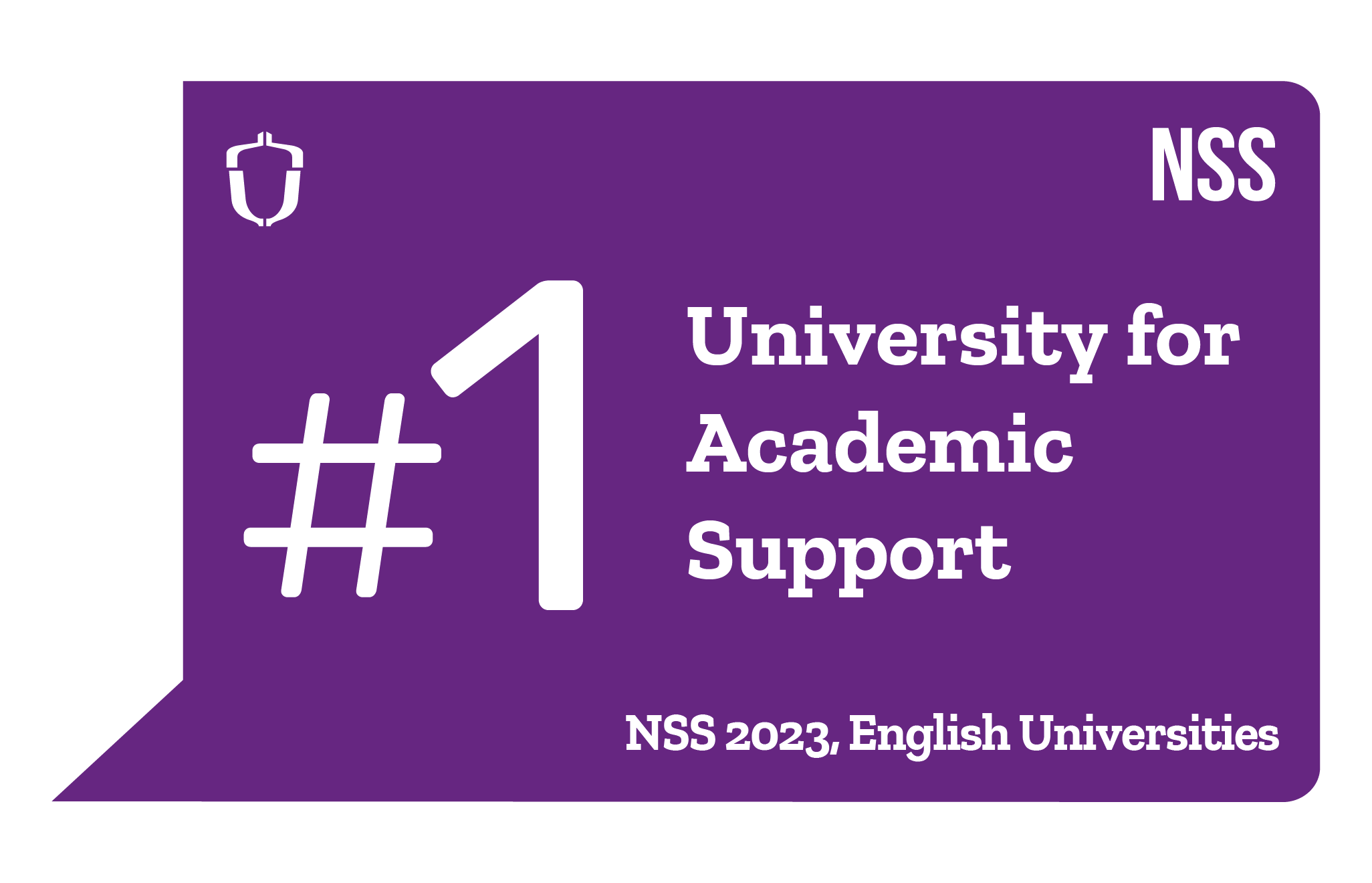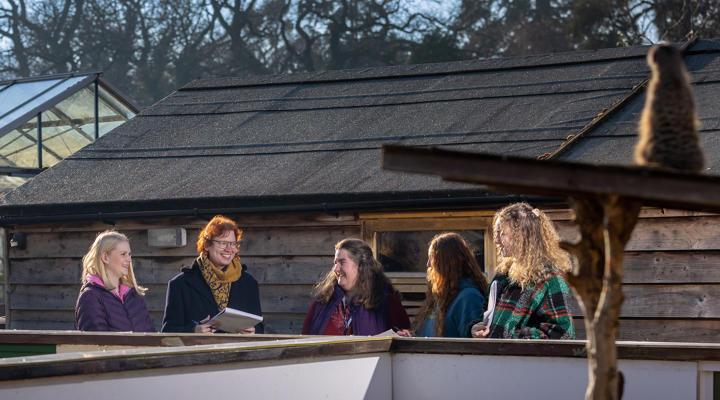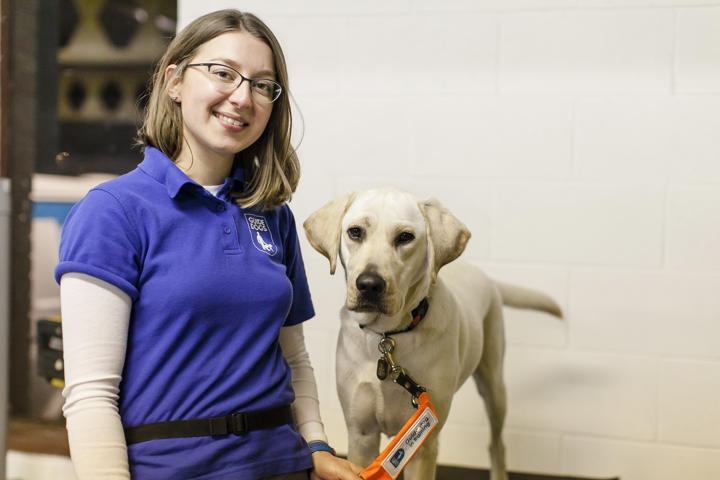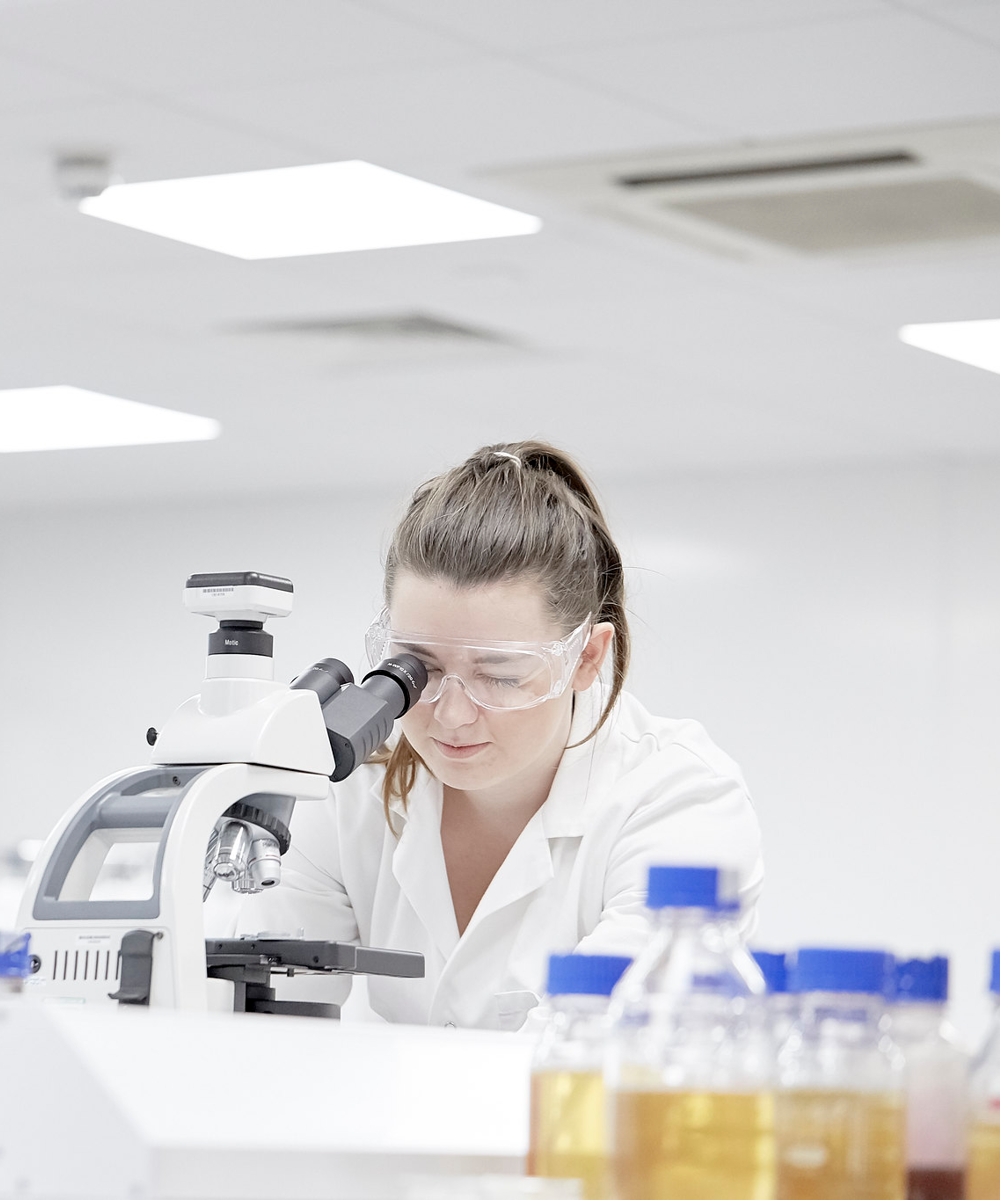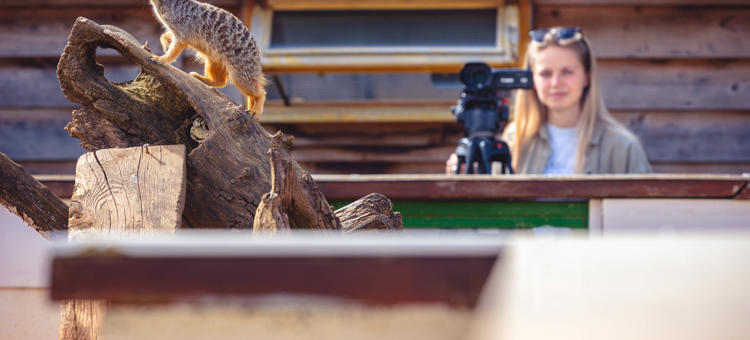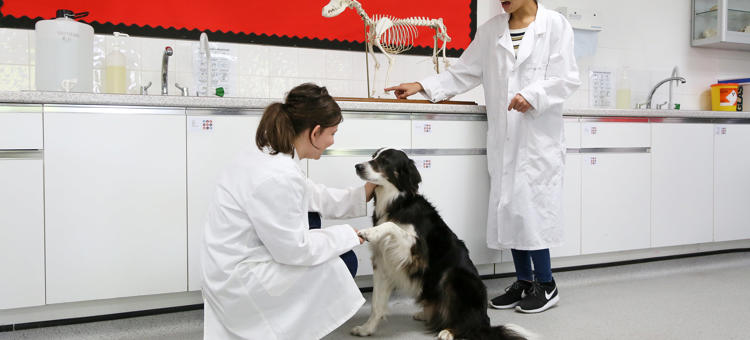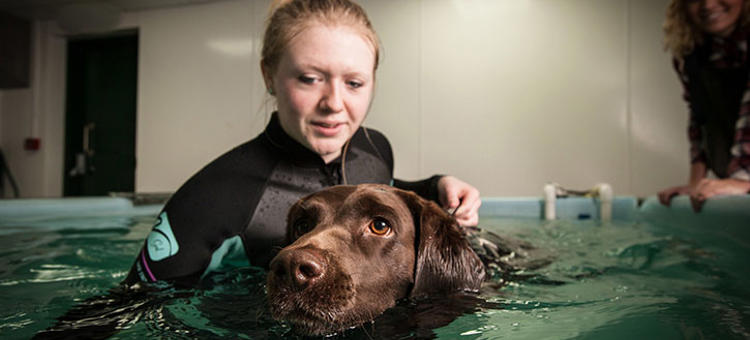This degree is for you, if you want to pursue a range of scientific areas that focus on the processes underpinning disease. You’ll develop your expertise in disease diagnosis, microbiology, physical therapies and rehabilitation.
Study bioveterinary science in professional-standard laboratories, volunteer within our animal collection, commercial farm and large equine centre to develop your experience working with animals.
Apply theory to practice as you get hands on in our dissection and microbiology laboratories, learning more about a range of species. Investigate notifiable and zoonotic diseases, study farm animals, equine and companion species.
You’ll have the opportunity to complete biochemistry and genetics modules, as well as livestock production with practical sessions on our campus farm. You could experience rehabilitation first-hand in our commercial equine and canine therapy centres with our animal therapy modules, and evaluate cutting-edge hydrotherapy research.
- UCAS | A typical offer for this course is 32-48 UCAS tariff points or equivalent.
- GCSE | A minimum of 5 GCSE A* to C, (or 9 to 4 where numeric grades are being awarded) or equivalent, to include English Language and Mathematics.
- A-Level | Typical offer is EE-DD or equivalent. This must include a minimum of two A Levels.
- Vocational Award | Typical offer is a PPP in an Extended Diploma in a relevant subject.
- Access | Typical offer is 32-48 UCAS tariff points in an Access to Higher Education Diploma.
- IB | Typical offer is 32-48 UCAS tariff points in an IB Diploma, to include a minimum of one Highers at H3 or above.
This must also include Maths and English Language at a minimum of Standard Level S3 if equivalent GCSEs have not been obtained.
- Scottish Highers | Typical offer is 32-48 UCAS tariff points in Scottish Highers. This must include a minimum of one Advanced Higher.
- Irish leaving Certificate | Typical offer is 32-48 UCAS tariff points in the Irish Leaving Certificate. This must include a minimum of one Highers. This must also include Maths and English Language at a minimum of Ordinary Level.
- OCR Cambridge Technical | Typical offer is a PPP in a Cambridge Technical Extended Diploma in a relevant subject.
- T Level | Typical offer is Pass in your T Level overall grade in a relevant subject.
- Other | Some evidence of practical experience in agriculture or similar land based studies is desirable.
We may interview mature applicants and those with non-traditional qualifications to ensure this is the right course for you.
Please contact us for further information.
Email us
Your support network
You'll benefit from a strong support network from day one to be the best you can be. This will range from your personal tutor and specialist academic support team (our Achievement and Success Centre) to dedicated wellbeing and employability (Innovation, Careers and Enterprise) centres.
Academic support
You’ll have your own personal tutor while you’re here who will support you to succeed in your studies. You’ll also have access to our academic and wellbeing support teams who run regular workshops and one-to-one sessions on campus and online.
Alongside this, we have a comprehensive bank of online study skills resources to help you make the most of your qualification.
Your learning experiences
You'll experience a range of teaching methods to strengthen your digestion of topics, including lectures, workshops and practical sessions, as well as supported work placement learning as part of many courses.
Your career
Each year of your course will be made up of two semesters, within which you’ll study compulsory and optional modules on different industry-focused topics, enabling you to develop your own unique portfolio of knowledge, skills and experience, ready for your career. The course is taught in English.

